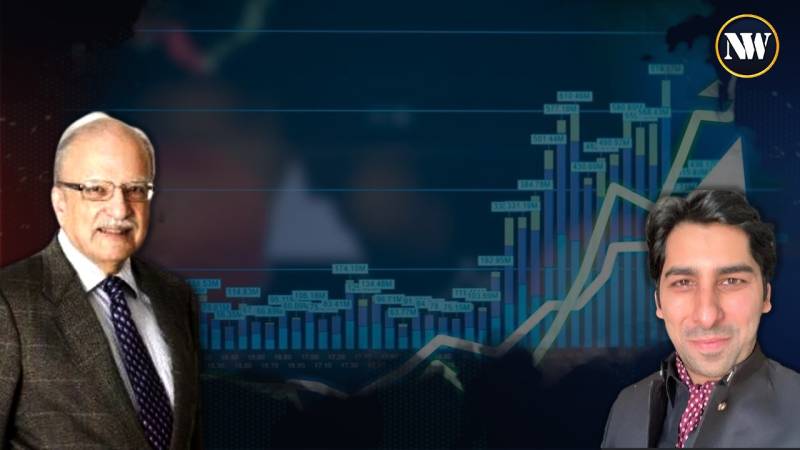Pakistan's economic journey has been characterized by both triumphs and tribulations, with each electoral cycle bringing a renewed focus on the nation's financial outlook. As the country emerges from the latest election cycle, the spotlight turns to esteemed economist and former Finance Minister Shahid Javed Burki for his astute analysis and recommendations.
With a distinguished career spanning decades and a deep understanding of Pakistan's economic intricacies, Mr. Burki's insights offer invaluable guidance in charting a course toward sustainable growth and prosperity.
At the core of Pakistan's economic challenges lies the need for comprehensive fiscal reform. In a candid discussion, Mr. Burki emphasizes the urgent necessity of a robust tax enforcement system. He laments the pervasive culture of tax evasion among the affluent, which not only deprives the government of much-needed revenue but also perpetuates inequality and undermines social cohesion.
"Proper economic management should begin with a major change in the fiscal system," asserts Mr. Burki. He calls for a paradigm shift in attitudes towards taxation, stressing the importance of making citizens take the tax system seriously. By enhancing revenue generation and curbing tax evasion, Pakistan can bolster its fiscal stability and pave the way for sustained economic growth.
The specter of debt servicing looms large over Pakistan's economic landscape, with mounting payments placing significant strain on the nation's finances. Mr. Burki highlights the gravity of the situation, noting that Pakistan faces substantial debt obligations in the coming years.
"In the next three years, we're making 74 billion rupees of payments just to the IMF," reveals Mr. Burki. This staggering figure underscores the urgent need for prudent fiscal management and structural reforms. By implementing sound economic policies, Pakistan can achieve a sustainable growth rate of 6 to 7% annually, contends Mr. Burki.
However, he acknowledges the complexities of balancing debt servicing with the imperative of fostering industrial growth. Finance ministers grapple with the daunting task of increasing tariffs or taxes without stifling economic activity. Mr. Burki advocates for a holistic approach that prioritizes productive investments while addressing fiscal constraints.
Beyond fiscal reforms, Mr. Burki emphasizes the importance of female empowerment and youth education and training. Drawing parallels with success stories from countries like Bangladesh, he underscores the transformative impact of women's participation in the workforce.
"Empowerment of women and training of the youth are top priorities," asserts Mr. Burki. By investing in human capital and fostering an inclusive economy, Pakistan can unlock its full potential and drive sustainable development.
Reflecting on Pakistan's economic golden age in the 1960s, Mr. Burki recalls the efficacy of effective tax systems and investments in productive sectors. He draws parallels between past successes and present challenges, advocating for a return to those policy priorities.
"In the 1960s, Pakistan experienced a period of robust growth and development," reminisces Mr. Burki. "We must rediscover that spirit of innovation and economic dynamism."
By embracing fiscal reforms, enhancing revenue generation through tax enforcement, and prioritizing investments in productive sectors, Pakistan can overcome its economic hurdles and pave the way for sustainable growth. Moreover, empowering women and investing in youth education are not only moral imperatives but also strategic decisions that can unlock the nation's full potential.
In the words of Mr. Burki, "Let us rediscover the spirit of innovation and economic dynamism that defined Pakistan's golden age. Together, we can build a future where every Pakistani has the opportunity to thrive and contribute to the nation's success."

